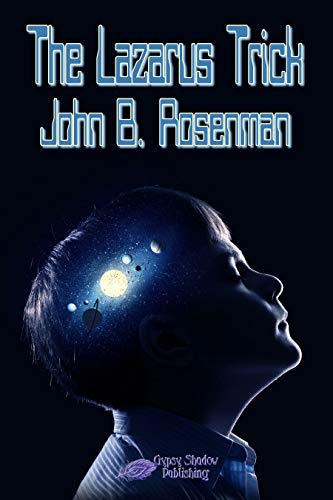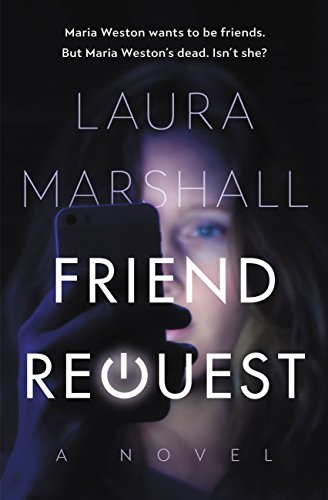Greetings, commies!
If you want to take a break from the impeachment circus, consider spending 20 minutes of your life on a short film Blind Trust. The world cannot have enough of sex and money scandals.
Synopsis:
The nominee for the U.S. Secretary of the Treasury gets caught in a public controversy around his family's hedge fund trusts.
My thoughts:
It definitely helps to understand finance and some of the jargon to appreciate this short film on a different level. "Blind Trust" is a play on words, referring to unconditional confidence in another person's loyalty as well as a particular financial model. The choice of actors for the roles is unconventional and all the more potent. The executive assistance having affair with the boss' husband is not some sexy bomb shell but a middle-aged, woman with rough features and a mannish haircut. I guess the director wanted to show that at that level of affluence and influence, looks don't matter anymore. Neither one of the female characters is traditionally glamorous. The only character who makes an effort to engage her feminine charm is the sneaky reporter, played by Annette Guarrasi. I also found it odd that the age difference between the executive mother and her daughter seems negligible. The daughter looks surprisingly weary for 28. Certainly doesn't look like your typical "golden child". In the end, those counter-intuitive casting choices made the film all the more poignant and eye-opening. The cynical and heartbreaking finale makes this film a true tour de force.
Thursday, November 21, 2019
Thursday, November 7, 2019
The Lazarus Trick: a study of loneliness and mortality
Greetings, commies!
Halloween is over, but we have a long winter ahead of us. Here is a suggested piece of short fiction for your teens and preteens, The Lazarus Trick from John B. Rosenman.
Synopsis:
Growing up can be hard, especially when you have mixed feelings about a fellow sixth grader. Tommy Starr is drawn to Mark Harmon, but despite Mark's magnetic personality, he has a dark side as well. On Halloween, Mark displays terrifying telekinetic and other abilities that frighten Tommy and make him decide never to see Mark again.
His father also doesn't want Tommy to see Mark. Still, Tommy disobeys him, choosing to remain Mark's friend. Soon, government agents discover where Mark and his own father have been hiding. They pursue Mark, determined to harness his powers for the military. As the two boys run, they grow ever closer until a climactic event changes Tommy forever.
My thoughts:
"The Lazarus Trick" made me think of a 1970s psychological horror film "Phantasm", as they both depict an adolescent mind trying to process the concept of mortality. You can read this novella as a straight up sci-fi piece that takes place in its own universe, or you can take it as a fantasy concocted by a child trying to come to terms with such daunting subjects as loneliness and death. A seemingly ordinary 11-year old Tommy puts himself at risk socially and physically when he befriends Mark, an outsider with supernatural talents. The novella starts with Mark playing a rather cruel trick on Halloween, much to Tommy's horror. As the plot progresses, we find out that there are unsettling reasons behind Mark's cruelty, secrets tied to the story of his birth. This child is carrying unfathomable burden that makes him and his father outcasts wherever they go. I kept wondering if the whole story is a figment of Tommy's imagination, if Mark was an imaginary friend, an alter ego Tommy wanted to possess. Regardless of how you interpret this story, your middle schoolers will find it enjoyable, thought-provoking and relatable.
Halloween is over, but we have a long winter ahead of us. Here is a suggested piece of short fiction for your teens and preteens, The Lazarus Trick from John B. Rosenman.
Synopsis:
Growing up can be hard, especially when you have mixed feelings about a fellow sixth grader. Tommy Starr is drawn to Mark Harmon, but despite Mark's magnetic personality, he has a dark side as well. On Halloween, Mark displays terrifying telekinetic and other abilities that frighten Tommy and make him decide never to see Mark again.
His father also doesn't want Tommy to see Mark. Still, Tommy disobeys him, choosing to remain Mark's friend. Soon, government agents discover where Mark and his own father have been hiding. They pursue Mark, determined to harness his powers for the military. As the two boys run, they grow ever closer until a climactic event changes Tommy forever.
My thoughts:
"The Lazarus Trick" made me think of a 1970s psychological horror film "Phantasm", as they both depict an adolescent mind trying to process the concept of mortality. You can read this novella as a straight up sci-fi piece that takes place in its own universe, or you can take it as a fantasy concocted by a child trying to come to terms with such daunting subjects as loneliness and death. A seemingly ordinary 11-year old Tommy puts himself at risk socially and physically when he befriends Mark, an outsider with supernatural talents. The novella starts with Mark playing a rather cruel trick on Halloween, much to Tommy's horror. As the plot progresses, we find out that there are unsettling reasons behind Mark's cruelty, secrets tied to the story of his birth. This child is carrying unfathomable burden that makes him and his father outcasts wherever they go. I kept wondering if the whole story is a figment of Tommy's imagination, if Mark was an imaginary friend, an alter ego Tommy wanted to possess. Regardless of how you interpret this story, your middle schoolers will find it enjoyable, thought-provoking and relatable.
Wednesday, November 6, 2019
Laura Marshall's thriller "Friend Request": on the dangers of "beta" status
Greetings, commies!
Somehow I missed the suicide prevention month, but it's never too late to write a post that touches upon mental health, peer pressure, bullying, social media, and how all those components can create a perfect disaster on all fronts. Hey, maybe some of you have school age kids. Maybe you are still reeling from the trauma of bullying. Consider reading Laura Marshall's thriller Friend Request.
Synopsis:
1989. When Louise first notices the new girl who has mysteriously transferred late into their senior year, Maria seems to be everything the girls Louise hangs out with aren't. Authentic. Funny. Brash. Within just a few days, Maria and Louise are on their way to becoming fast friends.
2016. Louise receives a heart-stopping email: Maria Weston wants to be friends on Facebook. Long-buried memories quickly rise to the surface: those first days of their budding friendship; cruel decisions made and dark secrets kept; the night that would change all their lives forever.
Louise has always known that if the truth ever came out, she could stand to lose everything. Her job. Her son. Her freedom. Maria's sudden reappearance threatens it all, and forces Louise to reconnect with everyone she'd severed ties with to escape the past. But as she tries to piece together exactly what happened that night, Louise discovers there's more to the story than she ever knew. To keep her secret, Louise must first uncover the whole truth, before what's known to Maria--or whoever's pretending to be her--is known to all.
2016. Louise receives a heart-stopping email: Maria Weston wants to be friends on Facebook. Long-buried memories quickly rise to the surface: those first days of their budding friendship; cruel decisions made and dark secrets kept; the night that would change all their lives forever.
Louise has always known that if the truth ever came out, she could stand to lose everything. Her job. Her son. Her freedom. Maria's sudden reappearance threatens it all, and forces Louise to reconnect with everyone she'd severed ties with to escape the past. But as she tries to piece together exactly what happened that night, Louise discovers there's more to the story than she ever knew. To keep her secret, Louise must first uncover the whole truth, before what's known to Maria--or whoever's pretending to be her--is known to all.
My thoughts:
I feel grateful for this novel and strangely validated by it. Having endured my share of school bullying, I always resented being told to "grow up, you're not in high school anymore". It's almost like an additional slap, essentially being called a whiny baby. My guess is that those dismissive phrases come from those who never were bullied themselves or maybe even instigated the bullying. Anyone who was on the receiving end of bullying will attest that adolescent trauma can linger. It affects your confidence well into adulthood, no matter how successful you may end up becoming. There is always that insecurity, that sense of unworthiness that makes you work extra hard to earn validation. So I applaud the author for acknowledging that. I also applaud her for creative a complex female protagonist who is not immediately sympathetic. Louise is not someone you immediately warm up to and want to root for, despite all the sob stories that she tells. Louise spends a lot of time bemoaning her plight as a newly divorced mom in her early 40s with minimal dating prospects. It took her many years to conceive her only son, only to have her narcissistic husband Sam dump her for a younger woman. So Louise is still in that neurotic, insecure, school-girl place where she constantly compares herself to other women in her age bracket, reads other people's profiles on Facebook. However, what makes the reader pause before embracing Louise is her dirty high school secret: having given into peer pressure, she had joined a bullying campaign against a classmate named Maria Weston. Louise blames herself for Maria's death on the night of the prom, but her desperate ways of seeking justification for her behavior make her remorse seem insincere. "I know I acted terribly, but ..." She spends a lot of time defending herself, and that makes the reader so hesitant to embrace her. I am not sure if this was the author's intention, but if she did intend to create this kind of ambivalence in the reader, she succeeded admirably. It's true that in bullying there are those who device the cruel master plots and those who carry them out. The queen of the clique devises the scheme and lets her "betas" do the dirty work. Louise ended up in that "beta" role. The whole novel is the story of a "beta" who had to stifle her conscience to gain popularity points. Very, very socially and psychologically authentic.
Subscribe to:
Comments (Atom)


